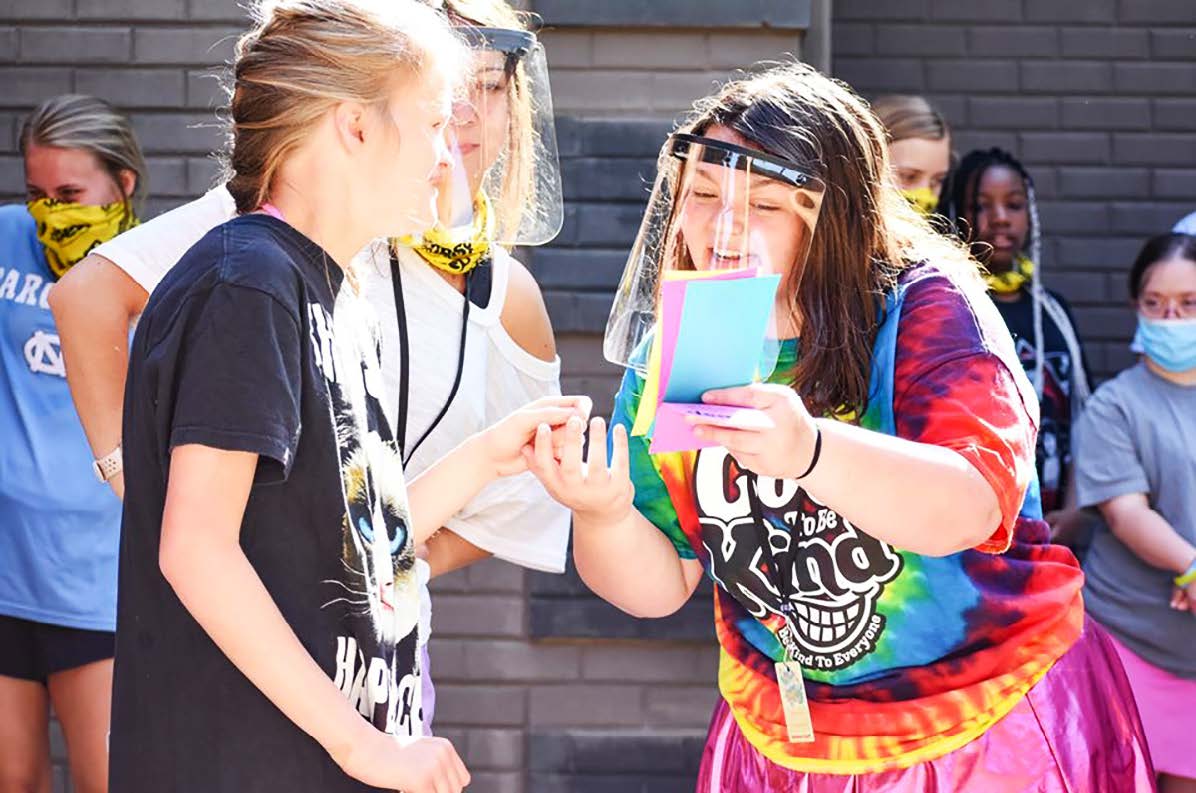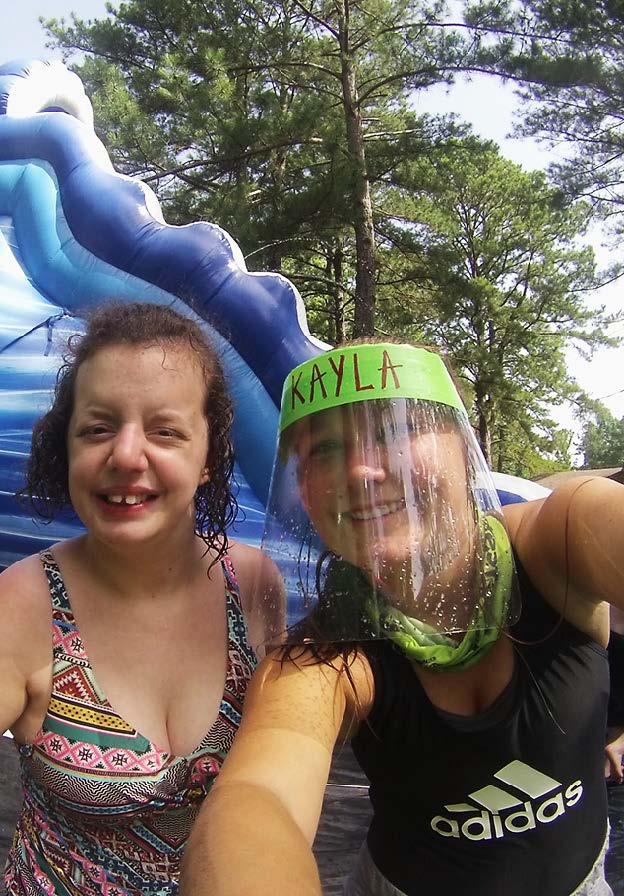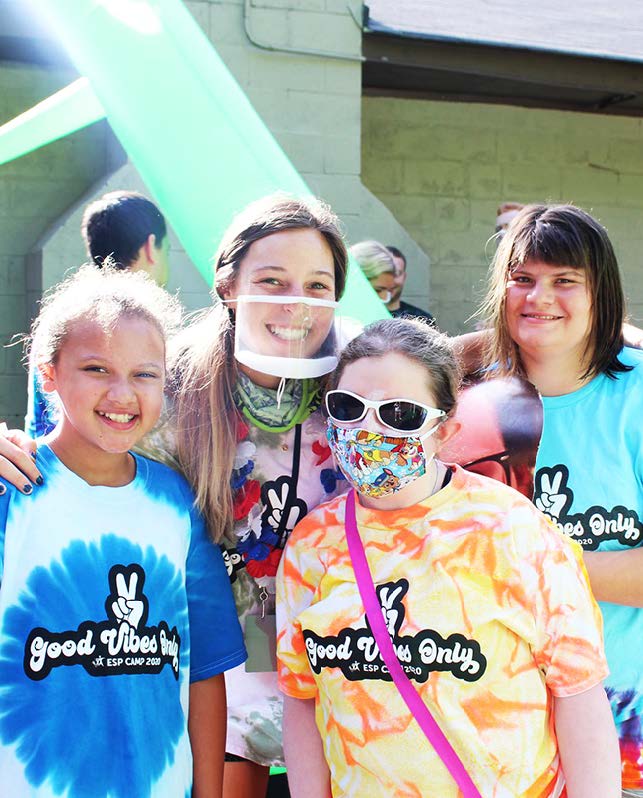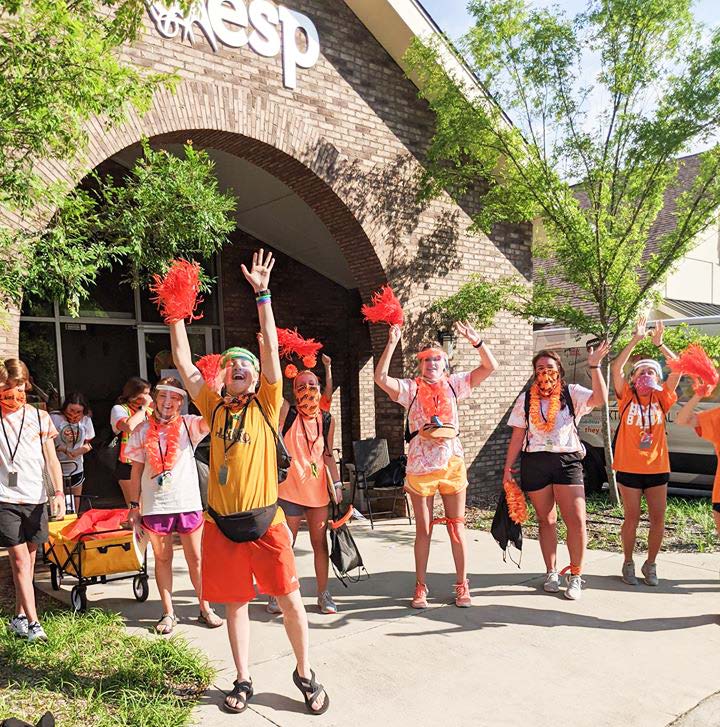
IN THE CONFUSION OVER REOPENING SCHOOLS, WHERE DO OUR KIDS WITH SPECIAL NEEDS END UP?
BY LAURA WHITAKER
We have all experienced them. The highs and lows of COVID-19. It began in March with the growing fears of a widespread, unknown, and uncontrollable virus. Schools moved from inperson to online in an effort to be vigilant to keep our families safe and healthy. It's no secret that the subsequent months have been a master class in charting unknown waters.
Because this pandemic is the first of its kind on a global scale, there is no playbook. There are no easy answers. After six months, the path forward is still unclear as we contemplate sending our children back to school. School boards, gov ernments, teachers and parents are doing their best to weigh the health risks of physically returning to classrooms with the mental, social and developmental risks of not returning to a typical social environment. As a nonprofit leader of an organization, serving hundreds of kids with special needs and their families called Extra Special People, we are walking alongside families regardless of the cost in 2020. Through our experiences and interactions with this community, we have received confirmation of several truths we have known for many years:
KIDS WITH SPECIAL NEEDS NEED IN-PERSON ENGAGEMENT: I recognize I am preaching to the choir: the majority of kids of all abilities crave and require human interaction, and most can truly thrive only with the support of touch. Caretakers have borne the efforts of in-person touch and care for many months, and although many do not see it as a burden, families are most successful when they can raise a child with special needs with a community of support and that includes teachers, therapists, and schools.


GOOD VIBRATIONS: We made the choice to re-open our day camps safely (but not 100% risk-free). We chose to do this because our community was suffering, and our mission is to help individuals with special needs thrive.
When schools and businesses in Georgia closed and we were asked to shelter in place, our nonprofit organization that runs on volunteer efforts and in-person activities was forced to close its doors in-person as well. My team and I decided that first, we must connect with all 600 of our families to find out what they needed. In a matter of days, we sprang into action to provide meals to families who had lost jobs and needed to be fed, groceries to families on lockdown, virtual support groups with an effort to provide sanity in the comfort of collective challenges, emergency respite services to caregivers whose children have severe behaviors, and daily inspiration on social media for all our participants and their families. Those first few days were crucial as routines were changed and families were living in fear. This gave us an opportunity to provide them a dose of hope despite the uncertainty we were experiencing.
After immediate physical needs were taken care of, we focused on the emotional wellbeing of our kids and families through Drive-Through Parades. Our team decked out in costumes, lined the parking lot of our buildings with music blaring and cheered for each family, calling each individual's name, as they slowly drove through. Each parade was a collection of air hugs, smiles, positive vibes and encouragement before we filled their car trunk with meals.
The feedback we received from families during this time was clear – our kids are happiest when they are actively engaging in person. We had to think creatively on how to follow all safety guidelines and social distancing rules, while being live and in-person. The clear-masked smile and a voice face to face was invaluable to the well-being of our community of kids with special needs. It is possible with a dose of creativity.
FAMILIES MUST BALANCE RISKS FOR THE MENTAL HEALTH OF THEIR CHILDREN: I am a mother of three typical children, so I understand and empathize with the parental responsibility of making wise and safe decisions for our family. Those decisions are multiplied when you are a parent of a child who is immuno-compromised or who has disabilities. But just as we weigh risks and rewards during normal times, it is just as important to think about the long-term effects on mental health when there is a lack of social stimulation. Social regres sion, depression and mental illness are just a few of the dark and difficult-to-quantify repercussions of COVID-19. From my experience during lockdown, our community of families needed interaction, words, tactile experiences, and resources to be stimulated and thrive. WE offer those things at ESP, but they can also be offered at school. As a community leader representing an often-forgotten population, I think it's incumbent for me to speak out and request that other community leaders and school administrators take note of the toll this time has had on families of children with special needs.

WELCOME CHANGES: We had to think creatively on how to follow all safety guidelines and social distancing rules, while being live and in-person. The clear-masked smile and a voice face to face was invaluable to the well-being of our community of kids with special needs. It is possible with a dose of creativity.
This summer, we stepped into action under this type of thought leadership. While many summer camps did not take place this year, we made the choice to reopen our day camps safely (but not 100% risk-free). We chose to do this because our community was suffering, and our mission is to help individuals with special needs thrive. Instead of being stifled and hampered by the restrictions of lockdown, we again channeled our creativity to innovate our traditional logistics and settings. Traditionally, we host six weeks of daytime summer camp with over 300 people at our 14,000 sq. ft. facility with indoor and outdoor games and activities. We knew this would not be possible so with the help of businesses, churches, and partners around town, we identified six locations where we could simultaneously hold camp for smaller groups of participants.
The safety precautions of our staff and volunteers were paramount in order to keep our camp participants safe. And even those measures evolved as we realized how difficult or impossible it was to hear and understand camp leaders when they are wearing facemasks. Thanks to the ingenious design of an online entrepreneur, we were able to provide facemasks with clear covering over the mouth that greatly improved communications. While nearly impossible to keep face masks on many individuals with disabilities, we led them by example, made it "cool," and many ended up following the 2020 trend.
The traditions and feel of camp remained the same and the magic of ESP was different, yet palpable. Familiarity and consistency are key when we are required to change several other aspects which our friends with special needs are comfortable with and used to. And the same can be done in schools, in therapy offices and in after-school activities. Most important, the courage to move forward must start at the top.
WE HAVE TO DO OUR HOMEWORK AND FOLLOW THE SCIENCE: Several studies have shown that children are less likely to catch COVID-19 and less likely than adults to see any severe symptoms at all. And a recent study found that there are not more significant risks for children with disabilities. While this was an initial fear amongst children with special needs, we can find comfort not in the media, but in science and statistics along the way. Winston Churchill once said that, "Fear is a reaction. Courage is a decision." In order to step forward in courage, we have to make the decision every day to consider the source and step forward for what is best for our families and our staff.
WE ALL MUST CONTINUE TO CHANGE OUR EXPECTATIONS WITH WHAT IS "NORMAL": Over the years I have heard from several of our families the stories of when their child was born with different abilities or when they received a diagnosis. Story after story recounted that doctors said their child would never do this or that, what is typical of other children, "normal." And yet, I have watched families of children with special needs become experts in not looking at the milestone map of typical children and re-write what normal means to their family. What is beautiful about it is that every milestone comes with unexpected surprises and joys. The phrase I have taken on for this COVID-19 season is in honor of them: high hopes and zero expectations.
It is time for us to embrace re-writing what normal life means. If we can have high hopes and zero-expectations, mixed with a dose of creativity, I believe that new normal will continue to evolve as the months progress toward a vaccine, herd immunity or whatever allows us to return to a life of human interaction, contact and – dare I say it – hugs! •
ABOUT THE AUTHOR Laura Whitaker is the Executive Director of ESP. Lean more at extraspecialpeople.com